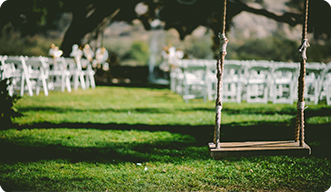

WHY FUNERALS MATTER
Having a funeral provides us with the opportunity to remember, reflect and to say goodbye. People need to do this; we need to grieve, we need to be with people to give and receive support. Funerals are for the living and play an important role in the grieving process.
We can underestimate just how much value a funeral has. All cultures have evolved rituals to honour their dead – they reflect the need to acknowledge what the deceased mean to us and provide a means to help the bereaved adjust to their new lives in the presence of loss.
FUNERALS ARE ABOUT SAYING GOODBYE
We need some kind of farewell to help us cope.
When someone dies, the funeral is not for them, it’s about them. The funeral is for everyone who knew, loved or was connected to that person. This is a simple fact but sometimes we don’t consider it that way.
The look and feel of funerals is changing.
Today people want to have their say in how the funeral will be. There’s “no one size fits all”. We’re learning that people want more involvement, more about the deceased, more creativity and personal touches –people want a funeral to be meaningful, relevant and true to the life lived. They want it to be authentic.
Funerals may be formal or relaxed, can contain elements of fun as well as serious reflection; there is a place for the sombre as well as colourful expression of feeling and thoughts. Symbolism can be helpful through music, readings, poetry, acts and thoughtful oratory.
For some people even the word ‘funeral’ sounds solemn or gloomy. You don’t have to call it a funeral – call it a gathering, a tribute, a farewell, a ceremony, a send-off, a get-together, a muster – whatever suits you best; it is involvement in the ritual which is important.

FUNERALS ARE ABOUT "GOOD GRIEF'’
They help to get the grief moving so that it doesn't get stuck inside.
Researchers and psychologists are very clear in their message about funerals and grief – participating in a ritual of a farewell, a funeral, helps to counter the initial effects of grief like shock, numbness and disbelief.
Funerals underpin a necessary part of grieving – they reinforce the reality that the death has actually happened.
We need to allow our grief to surface. The funeral provides a safe and appropriate place to show and share our feelings with others. We should not underestimate how helpful this can be in setting the foundations for ‘good grief’ or healthy grieving.
The reality is this – you cannot avoid grief just because you don’t want to experience it, or you don’t want others to see you upset. As human beings, we need to grieve.
Whilst we are often grateful for someone’s life, funerals should not be one sided. The funeral should not only celebrate the person, it should be allowed to be real about how the mourner's feel. Farewells of any sort are legitimately an emotional time, so funerals are farewells of great significance.
Funerals can help us say: Thank you. I love you. I'm lonely without you. I’ll always remember you. You meant a lot to me. Funerals help us make meaning of our lives and the lives and relationships we share.
FUNERALS ARE FOR SUPPORT

It’s seen as the right time and place for people to be together.
People may under-estimate how important it is to gather together when someone has died – to talk, to support each other, to reminisce and tell stories, to pay their respects, to let you know that they care about you.
Without a funeral, people often don’t know if it’s alright to contact you or to bring up the subject of what’s happened. The funeral is seen as the ‘right’ time and the ‘right’ place to approach you and to offer their support to you. When we are grieving we need support. Our friends also have a need to reach out to us and say: I'm here for you.
Having this kind of support is vital in the weeks and months after the funeral when the reality of the loss really starts to sink in, and we try to adapt to a life without someone who mattered to us.

Most of us have very little experience when it comes to organising funerals. Because of this, we often don’t know the various steps involved in arranging a funeral ceremony.

Funerals are a difficult subject for most people to discuss, especially when talking about their own.

Grief is a normal human response to a loss or tragic event in someone’s life and it affects everyone differently.

